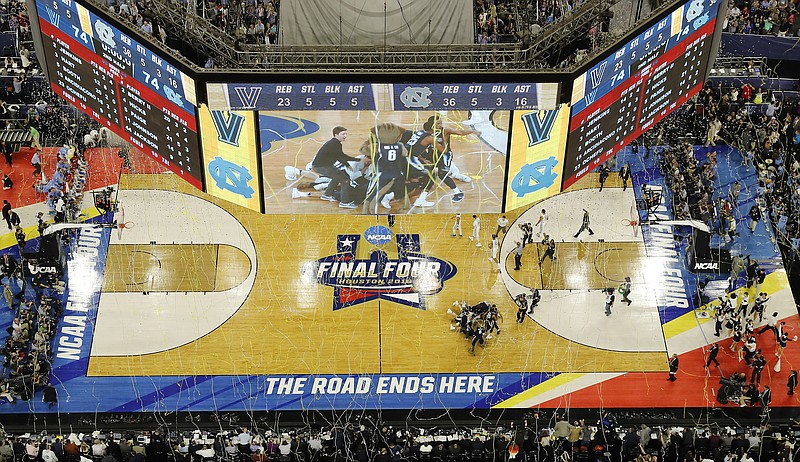The NCAA basketball tournament is to the most casual gambler what the Super Bowl is to the most laissez-faire football fan.
You don't need to know a three-pointer from a three-point buck to participate in the madness that is March. Brackets come cheap. Upsets come frequently. Payoffs come in doses of inclusion and the return on investment with the office-celebrity status of picking MTSU over Michigan State, which is a very fair return on a $5 entry.

The odds are well-documented, and the two-calculator-full 9,223,372,036,854,775,808-to-one chance of filling out a perfect tournament sheet for a 64-team draw is staggering. It's even more colossal when you picture how many actual tournament brackets it would take to cover every possibility.
If you could somehow fill out a complete bracket in one second, it would only take you a little more than 290 trillion years to figure out all the combinations. You'd have a better chance of making four holes-in-one in a single round.
The actual odds are much lower, but for Joe Gagliano, there is no such thing as a sure thing.
Even when it is a sure thing.
Gagliano was the ring leader and organizer of the 1994 Arizona State University point-shaving scandal. He won millions, turning to gambling after getting hooked on the adrenaline of being a day trader in Chicago.
"It was crazy," Gagliano said about the fast-paced life of the business version of Las Vegas. "Most guys who wheel-and-deal on the markets like that either get heavy into drugs or gambling.
"And I never liked drugs."
Speaking on "Press Row" on ESPN 105.1 the Zone last month, Gagliano detailed the planning, the execution and the details of the game-fixing scandal. He was pitching his book, "No Grey Area" about the ins and outs of fixing the regular-season games. It started with his brother knowing a Sun Devils player, and the money and greed working to his advantage. "It was set-up perfectly," Gagliano said of the three-game swing that had the Sun Devils lose games in the scope of the point spread set by Las Vegas. "And then it unraveled."
Eventually it fell apart, and the money was gone. People talk. News leaked. Whispers became stories. The authorities wanted answers.
Gagliano went to federal prison, the first of his two trips in federal custody, the second of which was for banking fraud. He said he wrote the book to share his story and to try to explain it to his two children. He's working now, still gambles at times, but is working under the new motto of "Always perform for an audience of one."
The gambling rush that got Gagliano - "It was better than the money in a lot of ways," he said - translates into this weekend, when the basketball is tipped and brackets are hinging on the outcome of this Cinderella or that No. 1-seed down one with possession of the ball.
More than 70 million brackets generated more than $9 billion in wagers last year, according to ESPN. Fortune Magazine projects that number to grow to $9.2 billion this year, with almost all of that done illegally.
By comparison, there will be more brackets submitted this year than ballots cast for any presidential candidate ever.
The odds may remain long, but the thrill of the chase and the notion that money won is better than money earned has never been greater.
Unless you are Gagliano.
Madness, indeed.
Contact Jay Greeson at jgreeson@timesfreepress.com or 423-757-6343.
